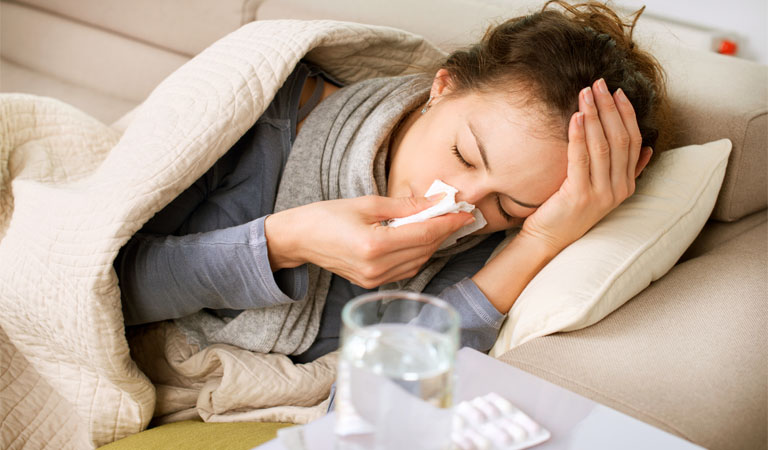Health leaders have urged people across North Lincolnshire to ensure they get a flu jab and help minimise strain on the NHS over the winter.
More people than ever before will be eligible for a free flu vaccination this year and with coronavirus still with us, officials say the two illnesses have the potential to put a major strain on the health service as winter approaches, as well as posing a risk to individuals.
Although most people who have flu generally recover within one to two weeks, it can lead to serious complications for those in vulnerable groups and over the last five flu seasons, the illness has led to an average of 11,000 deaths in England per season.
The North Lincolnshire Health and Wellbeing Board has launched the Stop Covid, Prevent Local Outbreaks campaign, which urges everybody to do their bit to help keep the spread of coronavirus under control in the region.
Infections of Covid-19 in North Lincolnshire have remained low when compared to other areas of the country, with the latest Government data showing a total of 767 cases in the area since the start of the pandemic and an infection rate of 445.2 per 100,000 of the population.
But health bosses in North Lincolnshire say there is a serious risk that infection numbers could rise as winter approaches and as the UK starts its largest ever flu vaccination programme for those who are eligible, getting a flu jab is critical to helping to also keep Covid-19 under control.
Penny Spring, Director of Public Health for North Lincolnshire, said:
“Covid-19 is still very much here with us and there is a serious risk that we will see infection numbers rise as the winter approaches.
“The co-existence of flu and Covid-19 not only poses a risk to individuals, but also has the potential to place an unbearable strain on our NHS.
“An NHS overwhelmed by flu would not be able to respond as effectively as it would like to Covid-19, as well as to other medical problems people may face.
“There is also a risk that frontline NHS and care worker staff could succumb to flu if it is being spread widely. Again, this would impact our frontline health and social care services.
“The symptoms of flu and Covid-19 can be similar and this is another reason why eligible groups should have the flu vaccine.
“We know the symptoms of Covid-19 that require isolation (for the whole household) and testing: a fever or a persistent cough or a change or loss in smell or taste.
“The measures we are all taking to challenge Covid-19, including social distancing, vigorous hand and respiratory hygiene and the wearing of face-coverings where appropriate should also help us against catching and spreading flu.
“It is everyone’s responsibility to stop Covid and prevent local outbreaks and get a flu jab will be critical in achieving this.”
Dr Faisel Baig, chairman of the NHS North Lincolnshire Clinical Commissioning Group and a North Lincolnshire GP, said:
“This year, we see the UK’s largest ever flu vaccination programme.
“Nationally, the plan is to see approximately 30 million people vaccinated and we should welcome the planning that has taken place to extend the vaccination offer to more people than ever before.
“Every year, flu puts an incredible strain on our population and our NHS. Although flu generally resolves within one to two weeks in the majority of people, we know that it can be deadly, especially in vulnerable groups where it can lead to serious complications, such as pneumonia.
“Over the past five flu seasons, there have been an average 11,000 deaths per season in England alone, with an estimated 22,000 deaths in the 2017-18 season.
“The flu vaccine is the best protection we have against flu and whilst it cannot guarantee complete protection, it does prevent many cases.
“We also know that those who have been vaccinated, but still end up getting flu, tend to get a much milder form.
“Serious side effects of the vaccine are very rare and all potential side effects are discussed before administration of the vaccine.”
A number of groups are now eligible for a free flu vaccination, including all adults aged over 65, primary school-age children, pregnant women and people with certain medical conditions.
It is expected that later in the year, all adults aged between 50 and 64 will become eligible, while those who are not entitled to a free vaccination can still arrange one through a local pharmacy for a small fee.
Dr Baig added:
“Your GP practices, pharmacies, midwives and other health professionals will be working harder than ever this year to ensure that all eligible groups receive the flu vaccine in a safe environment where all social distancing and infection control requirements have been met.
“In some instances, this may mean vaccinations take place in premises and locations different to previous years.
“The NHS and social care need you to play your part during these difficult times.
“If you or your loved ones are eligible, please ensure the offer of a flu vaccine is accepted.”




